Momiji Manju, a delightful maple leaf-shaped sweet, is one of Hiroshima’s most iconic treats. Known for its soft dough and sweet fillings, this charming confection is a must-try for anyone visiting Japan. With its rich history, regional variations, and evolving flavors, Momiji Manjyu offers a taste of tradition and creativity that continues to captivate locals and visitors alike. Read on to discover what makes this beloved sweet so special!
What is Momiji manjyu?
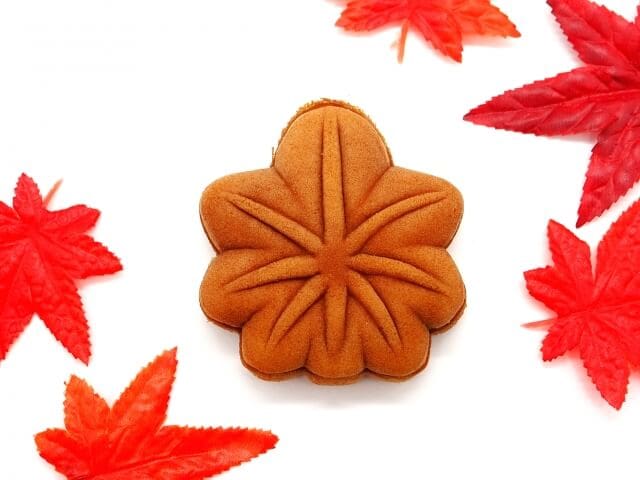
Momiji Manju (もみじ饅頭) is a traditional Japanese confectionery from Hiroshima Prefecture, particularly popular in the Miyajima area. The name translates to “maple leaf-shaped bun,” with traditional filling like smooth sweet red bean paste (anko), but modern variations include matcha, chocolate, custard, and even cheese.
Momiji manju is a souvenir sweet representative of Miyajima and Hiroshima. Miyajima and Hiroshima proudly offer Momiji Manju as a representative souvenir sweet. Originating in Miyajima, this treat has captured hearts from the Meiji era all the way to the present Reiwa era. The most common type is castella dough filled with red bean paste. Still, today there are over 100 kinds of Momiji manjyu, including chocolate and cream flavors. The fillings vary, including red bean paste, chocolate, cheese, and cream. There are also various cooking methods for momiji manju, such as frying, cooling, or wrapping them. Furthermore, the way locals made the castella and cooked the red bean paste varies from store to store, so each store has its unique manufacturing process.
Types of Momiji Manju
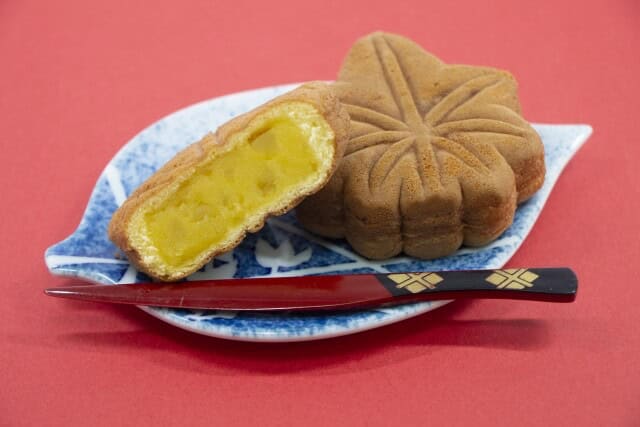
Momiji Manju, traditionally filled with red bean paste, has evolved with new flavors like cheese cream, custard, and chocolate, leading to a wide variety of options. At Fujiiya, a shop known for its stylishly elongated maple leaf-shaped Momiji Manju, five flavors are offered. These include classic fillings like smooth bean paste, whole bean paste, and matcha bean paste, as well as Western-style options like chocolate and custard, catering to diverse tastes.
Momiji manju Origin
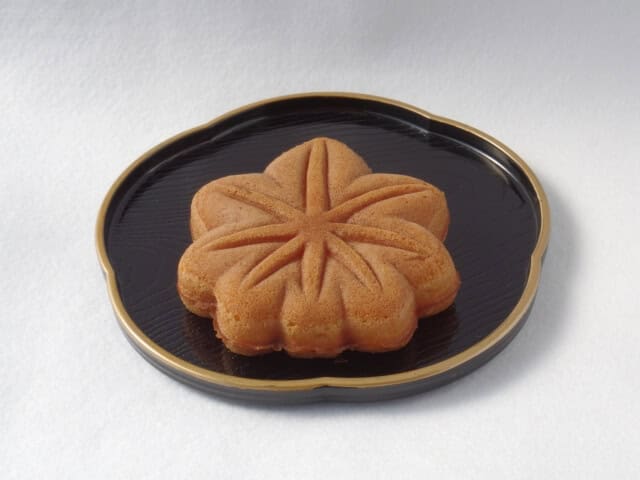
Momiji Manju originated in Miyajima (Itsukushima), Hiroshima Prefecture, during the Edo period, when it was created as a souvenir for visitors to the famous Itsukushima Shrine. Inspired by the area’s stunning autumn leaves, these sweets were shaped like maple leaves and filled with red bean paste. Over time, Momiji Manjyu grew in popularity across Hiroshima, leading to unique regional varieties with different flavors and textures. Modern versions now feature diverse fillings like matcha, chocolate, and custard, along with creative dough types, such as chewy mochi or fluffy sponge. The designs have also evolved, ranging from classic leaf shapes to intricate, colorful patterns, making Momiji Manju a beloved and versatile treat.
FAQ
- What is the shelf life and storage method for momiji manju?
Typically, the shelf life is around 20 days to 3 weeks, varying by manufacturer and packaging. Check specifics at purchase. It’s best stored at room temperature, as refrigeration can affect dough texture.
- What is included in momiji manju?
Momiji Manju’s distinctive texture and flavor come from a cake-like dough made from wheat flour, eggs, sugar, corn syrup, milk, salad oil, and baking powder. The filling usually consists of smooth Hokkaido red bean paste (koshian) or textured bean paste (tsubuian), sometimes with flavor enhancers such as emulsifiers.
Where to buy Momiji manjyu?
Takatsudo (高津堂)
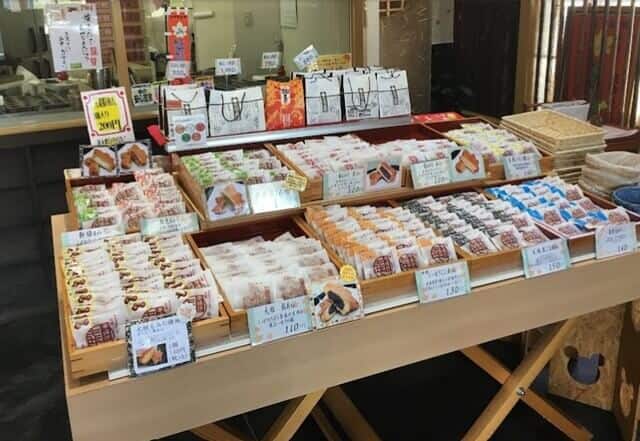
Takatsudo, the original Momiji Manju shop, traces its origins back to 1906 when Tsunesuke Takatsu first created this iconic treat. Over the past century, Momiji Manju has become one of Hiroshima’s most beloved confections, cherished by locals and visitors alike. At Takatsudo, the tradition of hand-baking each Momiji Manjyu continues to this day, ensuring a soft, moist texture that reflects the care put into every piece. The shop also takes pride in using carefully selected bean paste, offering customers an authentic taste of this historic sweet.
Nishikido (にしき堂)
Nishikido’s Momiji Manju is a traditional Japanese sweet that represents Hiroshima Prefecture and is very popular with tourists. This confection is shaped like a maple leaf and is a roll filled with smooth or chunky red bean paste. At Nishikido, in addition to the basic smooth red bean paste, you can enjoy a variety of flavors such as cheese cream and chocolate. There is also a new style of momiji manju called “nama momiji,” which is characterized by its moist texture.
Conclusion
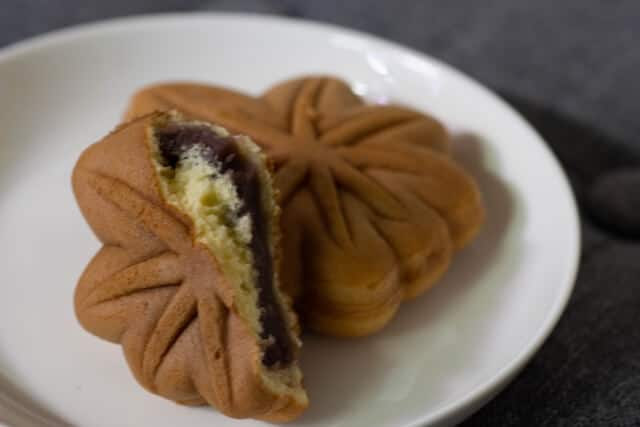
From its charming maple leaf shape to its variety of delicious fillings, it offers something for everyone to enjoy. Whether you’re savoring the classic red bean paste or indulging in modern flavors like chocolate or custard, each bite is a taste of Japan’s culinary artistry. If you find yourself in Japan, especially in Hiroshima, don’t miss the chance to pick up some Momiji Manju as a souvenir—or better yet, enjoy it fresh while exploring the region. It’s a treat worth experiencing!
You can check some Japanese snacks that we know you would like to try too.
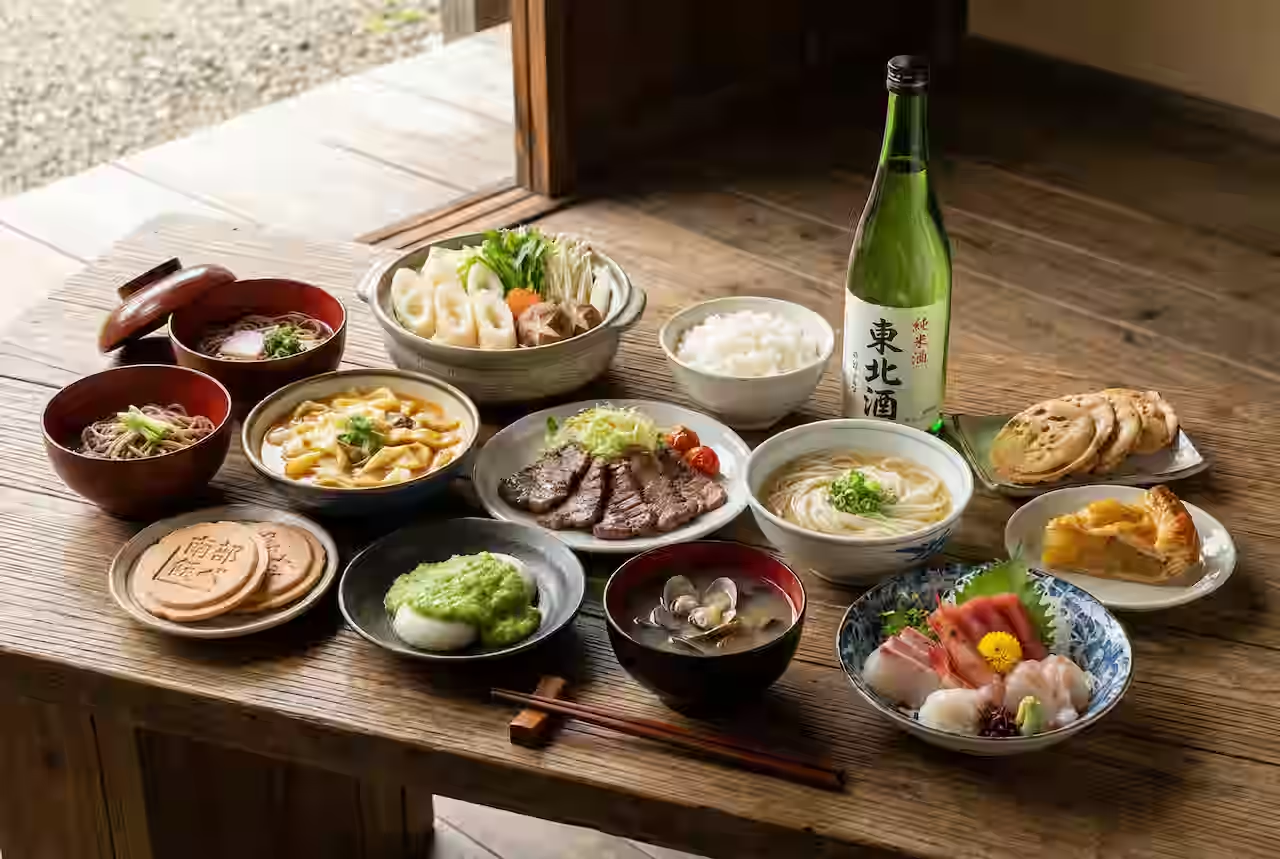

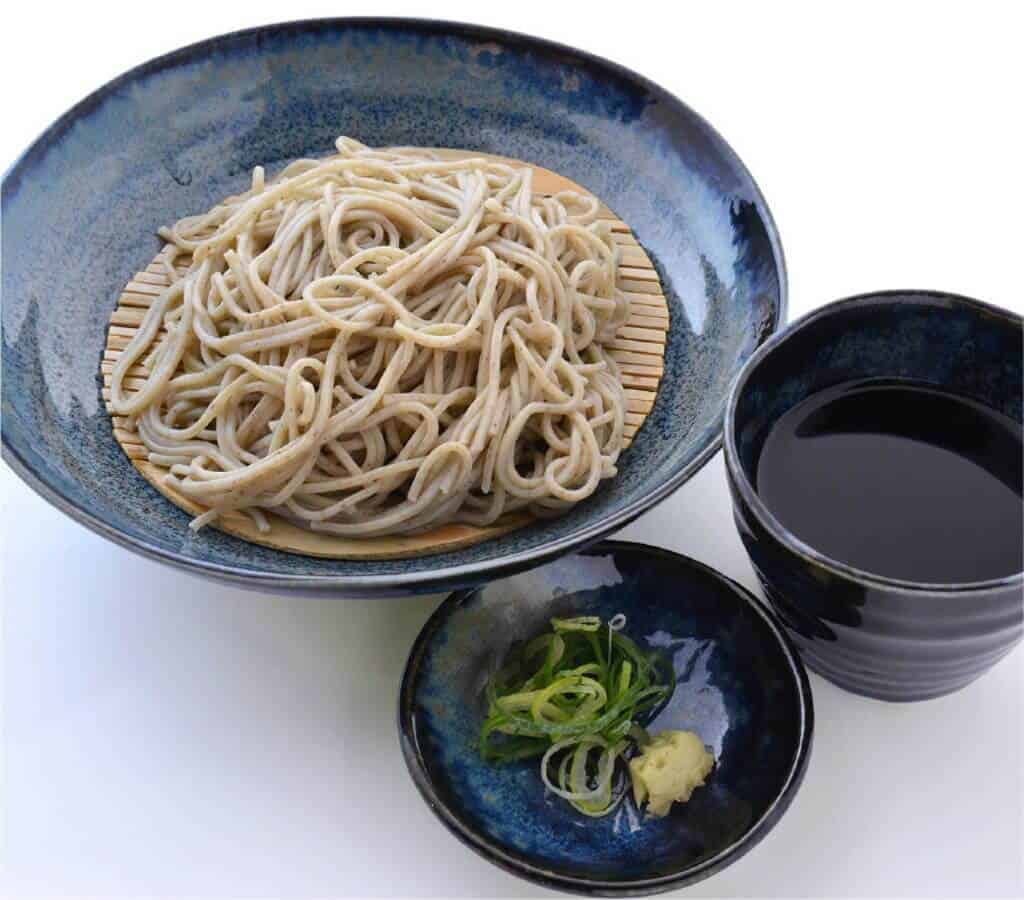
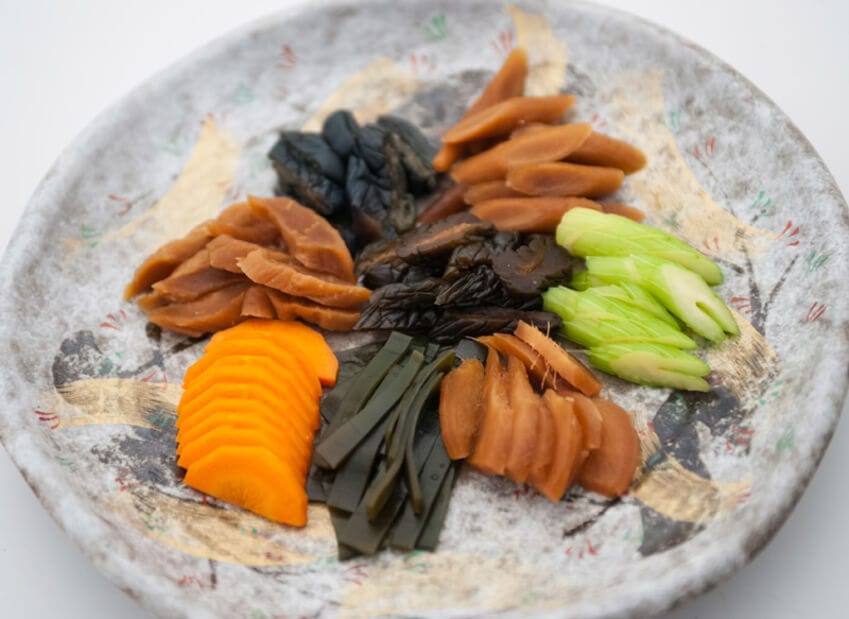
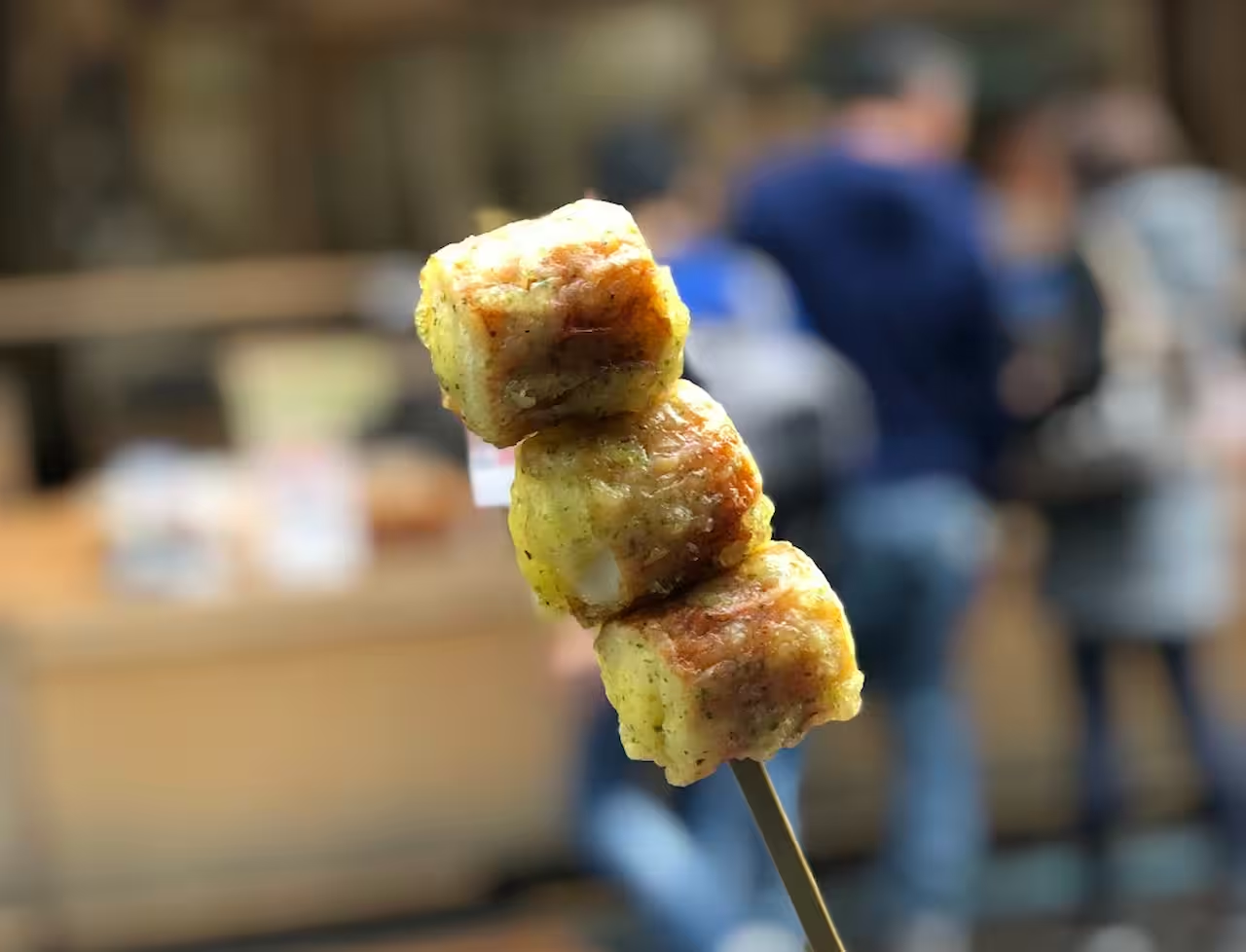

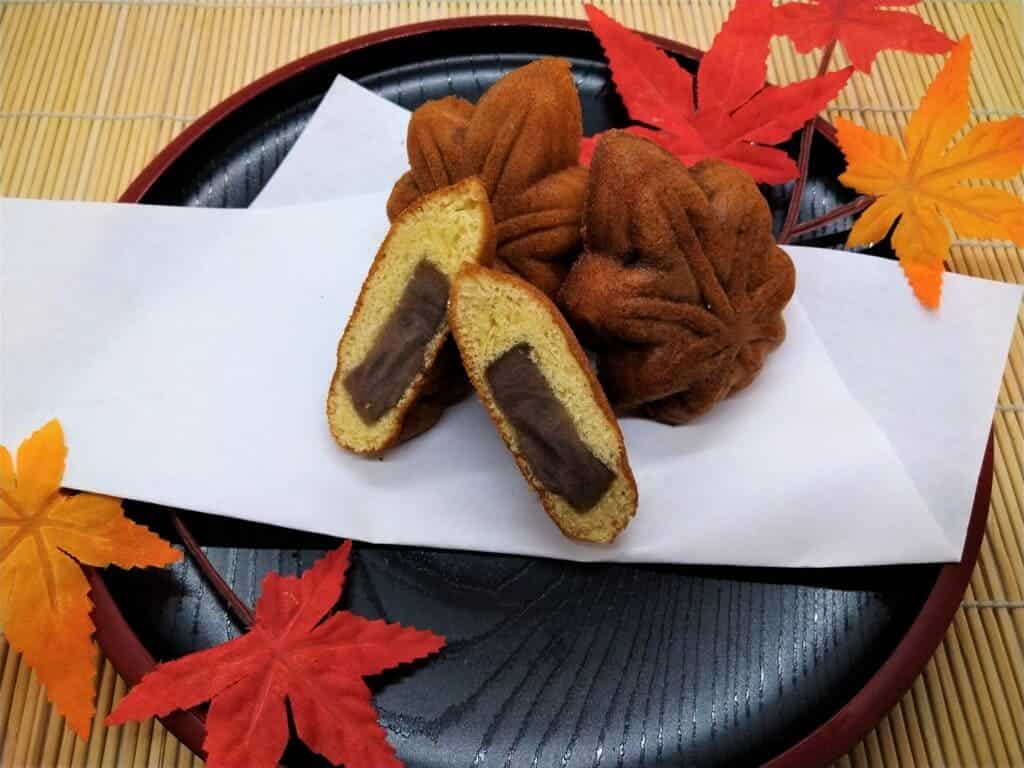
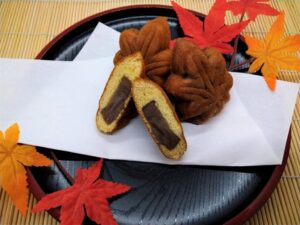
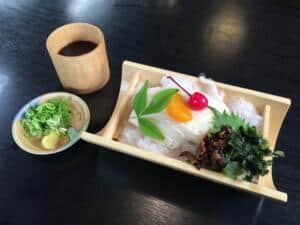
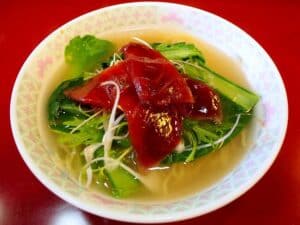
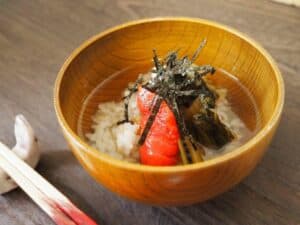
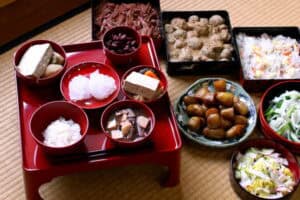
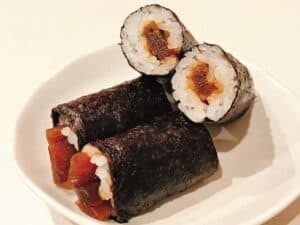
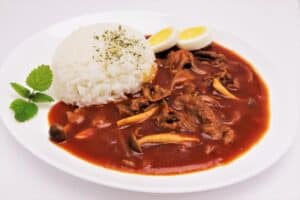
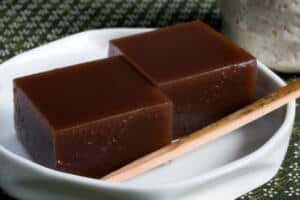
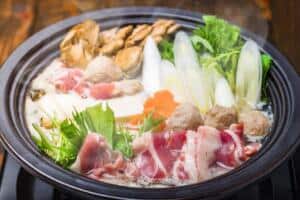
Comments